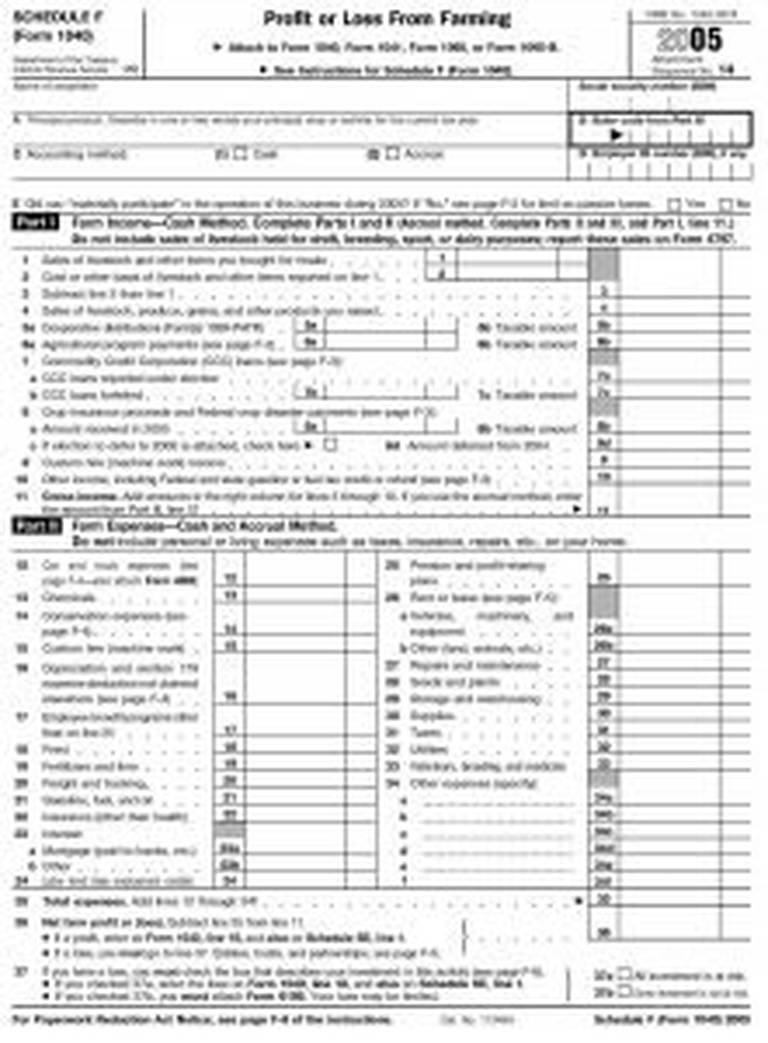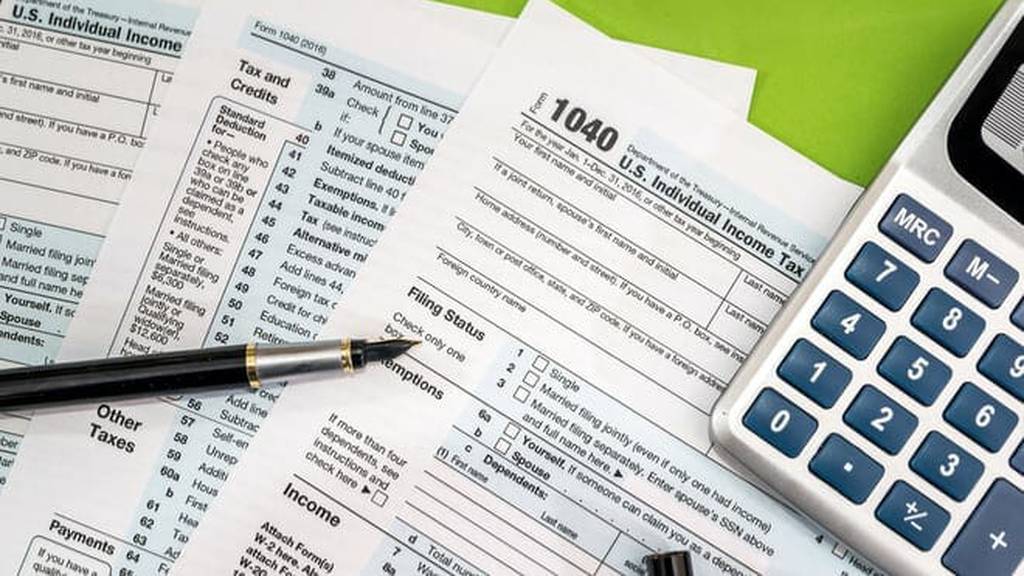For most of you, Schedule F is of no consequence. The typical taxpayer need never worry about adding this schedule to their IRS Form 1040. But for a small sliver of Americans, this form is crucial.
Read the Full Cash App Tax Review Here
If you have to report any income from farming, you’ll have to put plenty of effort into your Schedule F.

Filling out Schedule F requires detailed accounting throughout the year. You’ll need detailed accounting of all income and expenses. Here’s a list of the information about the previous year that you’ll need before you start filling out your Schedule F:
- Amount from the sale of livestock and other items bought for resale (you’ll also need to know the total cost of all items in this category)
- Total sales of livestock, produce, grains, and any other products you raised
- Cooperative distributions
- Agricultural program payments
- Commodity Credit Corporation loans, both reported under election and forfeited
- Crop insurance proceeds and any federal crop disaster payments
- Any custom hire (i.e., machine work) income
- Any other income, including federal and state gasoline or fuel tax credit or refund
Like any business, farm income comes with many expenses you can deduct, and you’ll want to deduct every single one that you can. Every dollar deducted is a dollar that isn’t taxed.
Put another way, every dollar you forget to deduct is a dollar you spent that you’re still taxed on. Before you fill out your Schedule F, you’ll want to read through this list of expenses American farmers can deduct:
- Car and truck costs
- Chemicals
- Conservation costs
- Machine work costs
- Depreciation
- Employee benefits
- Feed
- Fertilizers and lime
- Freight and trucking
- Gasoline, fuel, and oil
- Insurance (other than health)
- Interest, both mortgage and otherwise
- Costs of hired labor, less employment credits
- Pension and profit-sharing plans
- Rent or lease on vehicles, machinery, equipment, land, animals, etc.
- Repairs and maintenance
- Seeds and plants
- Storage and warehousing
- Supplies
- Taxes
- Utilities
- Veterinary, breeding, and medicine
As you can see, the list is extensive. Over the course of a full year, it’s very easy to lose track of expenses. But remember that you’ll save yourself your marginal tax rate on every dollar you can deduct. This goes to show how much it behooves you to develop sound accounting practices and stick to them throughout the year.
Make sure that every deductible expense is entered into the books as it occurs. That way your filing process will be easy come tax time.
If you find yourself confused by IRS legalese, you are not alone. Taxes, particularly for small businesses, can be deeply complicated. That’s why it always bears repeating: any questions you have should be brought to a qualified tax professional.
A qualified accountant or tax attorney can help you comply with the law and minimize your tax liability. The last thing you want to do is incur heavy penalties because you failed to file your taxes correctly. Here’s a small silver lining: what you spend on professional services is usually deductible for the self-employed. Ask your tax pro to be sure.
Should you need help filing your taxes this year, you may want to consider both Turbo Tax and H&R Block. Their free online tax software can make your tax nightmares disappear.
The Best Free Tax Software
| Brand | Best For |
|---|---|
| Cash App Taxes (formerly Credit Karma Tax) | All Individual Filers |
| Turbo Tax | Overall Features |
| TaxACT | Freelancers |
| H&R Block | Free Filers |
Read More: What Is The Cheapest Tax Software









